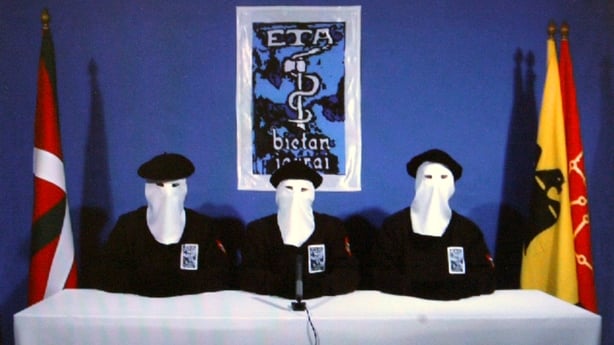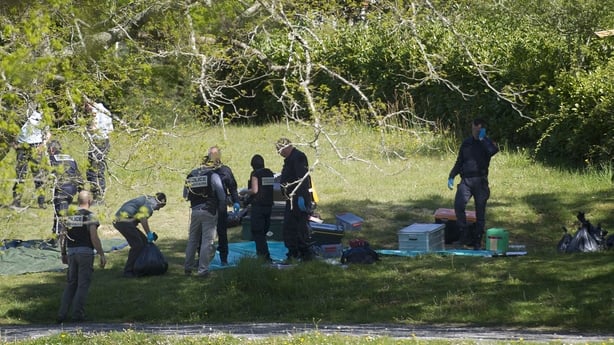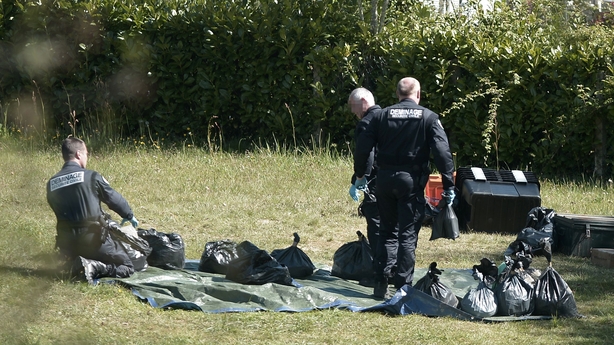Nearly 3.5 tonnes of arms, explosives and other materiel have been found in eight arms dumps identified by the Basque separatist group ETA, according to French Prime Minister Bernard Cazeneuve.
ETA, which killed more than 850 people in its attempt to carve out an independent state in northern Spain and southwest France, declared a ceasefire in 2011 but did not disarm.
The group provided France with a list of arms caches under its promise to completely disarm by today.
"The French government welcomes this operation, carried out calmly and without violence," Mr Cazeneuve said in a statement.
"It's a decisive step towards the end of Basque separatist terrorism."
Founded in 1959 out of anger among Basques at political and cultural repression under General Francisco Franco, ETA gained notoriety as one of Europe's most intractable separatist groups.

The Spanish government said ETA's handover of weapons in the French city of Bayonne was positive but insufficient and called on the group to formally dissolve and apologise to its victims.
In a statement, Prime Minister Mariano Rajoy said the arms cache move signalled the "definitive defeat" of ETA. He reiterated the group could expect no government favours as a result.
ETA said in a letter to the BBC earlier this week it had handed over its weapons and explosives to civilian go-betweens who would deliver them to authorities.
The mediators, known as "The Artisans of Peace", passed authorities a list with the coordinates for eight sites where ETA had stored its weapons arsenal, their representative, Michel Tubiana, told reporters in Bayonne.
The caches contain 120 firearms, about 3 tonnes of explosives and several thousand rounds of ammunition, he said.
Police were photographed carrying out bags from sites around Bayonne.


France said the move was a "major step" and "an undeniably important day".
A Spanish government source said Madrid did not believe the group would hand over all its arms, while Spain's state prosecutor has asked the High Court to examine those surrendered as possible murder weapons used in hundreds of unresolved cases.
Minister for Foreign Affairs Charlie Flanagan has welcomed the arms decommissioning.
He said that it "marks a significant and welcome step in the disbanding of a terrorist organisation which inflicted great suffering on people in fellow EU member states".
ETA's disarmament entailed no impunity for their crimes and they should not expect any favourable treatment, the government said in a statement.
"The actions carried out today by the terrorist group are nothing more than the result of their definitive defeat," Interior Minister Juan Ignacio Zoido told reporters in Madrid.
Arnaldo Otegi, leader of Basque pro-independence party EHBildu who has served time in jail for his links with ETA, said in Bayonne that it was a day that would be welcomed by the great majority of Basques, although work was not finished.
"From today we will put on the table all the problems we still have as a society and a nation," he said, adding that the biggest issues were the around 300 ETA members still in Spanish and French prisons and the group's victims.
ETA's first known victim was a secret police chief in San Sebastian in 1968 and its last a French policemen shot in 2010.
It chose not to disarm when it called its truce, but has been weakened in the past decade after hundreds of its members were arrested and weapons seized in joint Spanish and French operations.
In 2011, ETA announced that it had abandoned its armed campaign, although this move did not entail disarmament.
It has more recently sought to negotiate its dissolution in exchange for amnesties or improved prison conditions for roughly 350 of its members held in Spain and France, and for current members living under cover.

